
Books
Take a look at the books that have been published by our academics.
Published books
Social networks and food security in the urban fringe
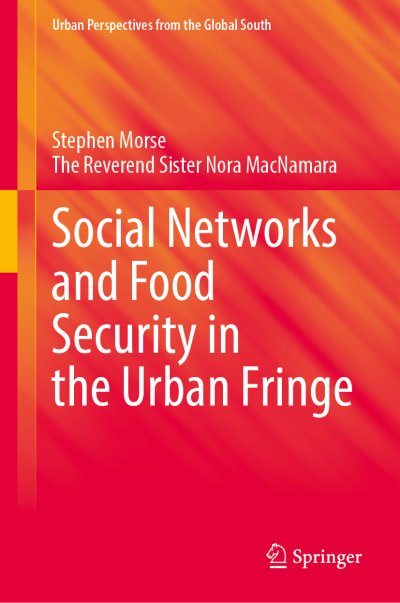
The book by Professor Stephen Morse explores how social groups in the urban fringe of Abuja, Nigeria, engaged with a series of development projects spanning 15 years (2003 to 2018) which focused on the enhancement of food security for farming households. The groups were at the heart of these development projects and the book presents the many insights that were gained by farmers and project agents working within these partnerships and provides advice for those seeking to do the same. The book also explores how the social groups attempted to lever benefits from being near to the fastest growing city in Africa and a centre of economic and political power.
While much has been written about social groups and their embeddedness within wider social networks in Africa and in other parts of the world, the exploration of the role of social groups within development projects is an area that remains relatively unchartered and this book seeks to fill that important gap in knowledge. It provides an important contribution for all those researching and working with social groups in the developing world.
Intrinsic CSR and competition
This edited book intersects the discussion on informal corporate social responsibility and competitiveness in Europe. The authors argue that the effect CSR has on a business depends crucially on why companies do it: Companies that engage with CSR 'because it's the right thing do' have very different content, importance and strategy towards CSR than those who pursue CSR to meet or exceed stakeholder expectations.
Exploring alternative interpretations of the profile environmental management activities have in SMEs, the book evaluates the way in which cultural and ethical values are embedded in European SMEs in order to drive and orientate CSR successfully without following the mainstream ‘systems’ approach. It addresses several values of thought within the CSR debate such as intrinsic CSR, the role of virtue ethics and moral theory in corporate culture, environmental sustainability and vision-driven CSR.
Focusing on a European perspective, the book heuristically explores an alternative model for the integration of CSR, innovation dynamics and economic success driven by intrinsic values rather than extrinsic post-decision rationalisations. The book also contributes to the debates on CSR by arguing that these motives are material to CSR and to a company's competitiveness, and that formal management systems are not the one-size-fits-all solution they are typically presented to be.
Published by Plagrave Macmillan. Editors are Walter Wehrmeyer, Stephanie Looser, Mara Del Baldo.
The rise and rise of indicators
This book makes indicators more accessible, in terms of what they are, who created them and how they are used. It examines the subjectivity and human frailty behind these quintessentially ‘hard’ and technical measures of the world.
To achieve this goal, The Rise and Rise of Indicators presents the world in terms of a selected set of indicators. The emphasis is upon the origins of the indicators and the motivation behind their creation and evolution. The ideas and assumptions behind the indicators are made transparent to demonstrate how changes to them can dramatically alter the ranking of countries that emerge. They are, after all, human constructs and thus embody human biases. The book concludes by examining the future of indicators and the author sets out some possible trajectories, including the growing emphasis on indicators as important tools in the Sustainable Development Goals that have been set for the world up until 2030.
This is a valuable resource for undergraduate and postgraduate students in the areas of economics, sociology, geography, environmental studies, development studies, area studies, business studies, politics and international relations.
Food most royal - nurture for posterity
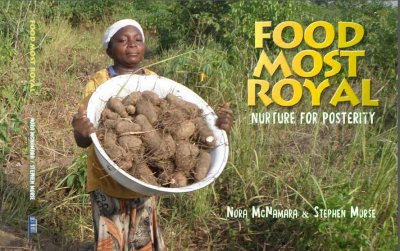
New book inspires the next generation to achieve food security, they can achieve what their parents and grandparents found so elusive - food security for all - says an expert in sustainability from the University of Surrey. In a new book targeted at schools, colleges and the general public called Food Most Royal, Professor Stephen Morse from the University of Surrey’s Centre for Environment and Sustainability urges the coming generation to strive for growing enough quality and affordable food for everyone in the world.
Professor Morse and his collaborator, Nora McNamara, focus on different ways to tackle food security and use the incredibly important West African crop, the white yam (Dioscorea rotundata), as a case in point. It is often called the ‘King of crops’ and has high economic, cultural and nutritional value but perversely is under threat in the very parts of the world where it is grown and most cherished. The book addresses why this is the case and sets out some solutions. White yam provides a lesson of the challenges that face us all; even those of us who live many thousands of miles away from West Africa and perhaps have never eaten yam.
Professor Morse said: “It is important for us all to be aware of food security and ensure that we can achieve a world where hunger, food banks and food contamination are a thing of the past. We hope that as many young people as possible will find inspiration in this book to help change the world.”
Find out more and purchase the book via the publisher website.
An e-book (Kindle) version of the ‘Food most Royal’ book is now available.
Biorefineries and chemical processes
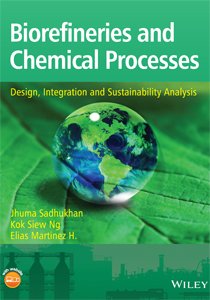
“This book is designed as an advanced text for final year and post graduate chemical engineers as well as for the teaching staff. It deals with the specialized subject matter thoroughly with good explanations of the chemistries involved and emphasizes where conventional chemical engineering principles differ from those needed to design biorefinery plant.” Chromatographia, DOI 10.1007/s10337-015-2843-9.
“This book aims to bridge the gap between engineering and sustainability in bio-based processes, with the help of analytical tools for economic and environmental assessment – and it succeeds in doing so. The reader will also learn how to apply these tools, thanks to the numerous problems elaborated and solved using software like ASPEN, MATLAB and GaBi (for LCA). In conclusion, this book introduces the reader to the rapidly-developing industry of biorefineries, with a multi-disciplinary approach.” Green Process Synth 2015; 4: 65–66.
Find out more on the Wiley website.
Prosperity without growth
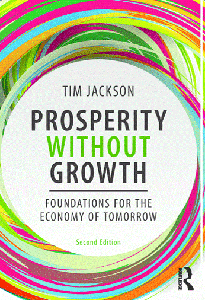
"The challenge to the prevailing growth-based economic paradigm confronts an inescapable dilemma: how to reconcile 'our aspirations for the good life with the limitations and constraints of a finite planet.' Its thoughtful and penetrating critique is enriched by an outline of credible programs to achieve this end. A very valuable contribution to urgent concerns that cannot be ignored." - Noam Chomsky.
For further information please visit the CUSP website.
Sustainable development and corporate social responsibility
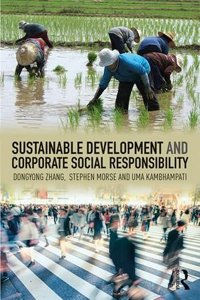
Professor Stephen Morse has published a new book entitled ‘Sustainable Development and Corporate Social Responsibility’. It explores the evolution of CSR across the developed and developing world, with a particular focus on China and sustainable development.
For further information go to our news article.
Taking stock of industrial ecology
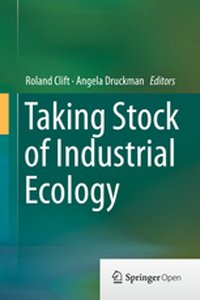
Professor Angela Druckman and Professor Roland Clift have published a book entitled 'Taking Stock of Industrial Ecology'. The book explores how we can design more sustainable industrial and urban systems that reduce environmental impacts while supporting a high quality of life for everyone?
What progress has been made towards reducing resource use and waste, and what are the prospects for more resilient, material-efficient economies? What are the environmental and social impacts of global supply chains and how can they be measured and improved?
For further information please go to the publisher website. This book is available as a free e-book.
Routledge handbook of sustainability indicators
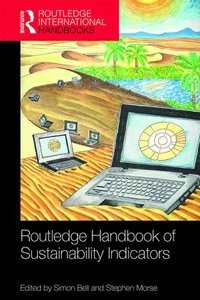
This handbook provides researchers and students with an overview of the field of sustainability indicators (SIs) as applied in the interdisciplinary field of sustainable development. The editors have sought to include views from the center ground of SI development but also divergent views which represent some of the diverse, challenging and even edgy observations which are prominent in the wider field of SI thinking.
Find out more on the Routledge website.